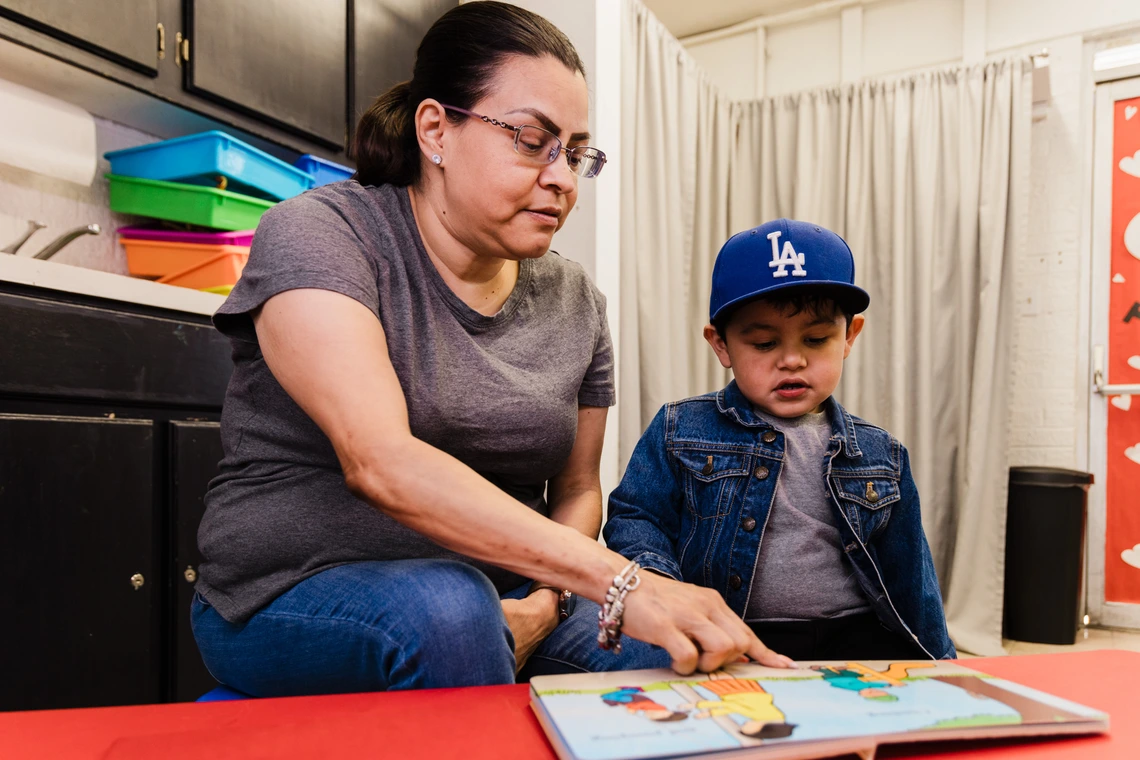Extension family resource centers support families with young kids
The Cooperative Extension centers tailor programming to respond to needs identified through connections to the communities they serve.

Cooperative Extension family resource centers offer a variety of activities that help caregivers help children thrive.
Alejandro Davalos
University of Arizona Cooperative Extension family resource centers are part of a broader support network coordinated through the state's First Things First initiative. Their common goal is ensuring families have what they need during our children’s most vulnerable years. Cooperative Extension offers numerous programs across the state that support that goal, including family resource centers in Santa Cruz and Maricopa counties.

Jennifer Argyros is the program coordinator for Santa Cruz County family resource centers.
Cooperative Extension
Jennifer Argyros has directed the Santa Cruz County Family Resource Centers program since 2014, leading the Nogales, Patagonia and Rio Rico centers to build a comprehensive dual-generation family support program while advancing statewide awareness of the resource center strategy’s effectiveness. She holds a bachelor’s degree in human services from University of Phoenix and a master’s in family and human development from Arizona State University.
What is a family resource center, and what kind of resources do they offer?
Family resource centers are community hubs that connect families to programs and services that strengthen child development and family well-being. We typically provide parenting classes, early learning activities, literacy programs, nutrition and health workshops, and financial education, though programs vary from community to community. Many offer parent/child playgroups and classes, developmental screenings and one-on-one help with community referrals for things like food, housing or health care. Bringing services together in one location makes it easier for families to get the tools, relationships and support they need to help children thrive.
Who are the centers aimed at helping, and how does Cooperative Extension determine what families need?
In Santa Cruz County, centers serve families with children up to age 5, including expecting parents and caregivers. These early years are critical for healthy brain development, so programs focus on supporting parents and young children together. Extension centers identify local needs by reviewing demographic data, conducting surveys and holding listening sessions with parents and caregivers. We also collaborate with schools, healthcare providers and others to understand challenges, such as child care access, food security and parenting concerns. Extension’s community-driven process ensures that programs match local priorities and cultural strengths and maximize resources for the youngest children and their families.
How does research help you determine what to offer or how to offer it?
Research guides both what our centers provide and how services are delivered. For example, Harvard’s Center on the Developing Child shows that 90 percent of brain development happens by age 5, so centers emphasize early learning and parent/child interaction. Evidence-based programs, such as Positive Discipline and Strengthening Families, are selected because they improve parenting skills and protective factors. And we regularly review local evaluation data like class attendance, participant feedback and kindergarten-readiness results to adjust topics, schedules and outreach strategies. This blend of national research and local data keeps programs relevant and makes them more effective.
See our Family Resource Center page to find a center in southern Arizona or Maricopa County. For services in Pima County, see our Family Engagement Program page. Contact your local University of Arizona Cooperative Extension office for information about early childhood programs and services in other counties.

